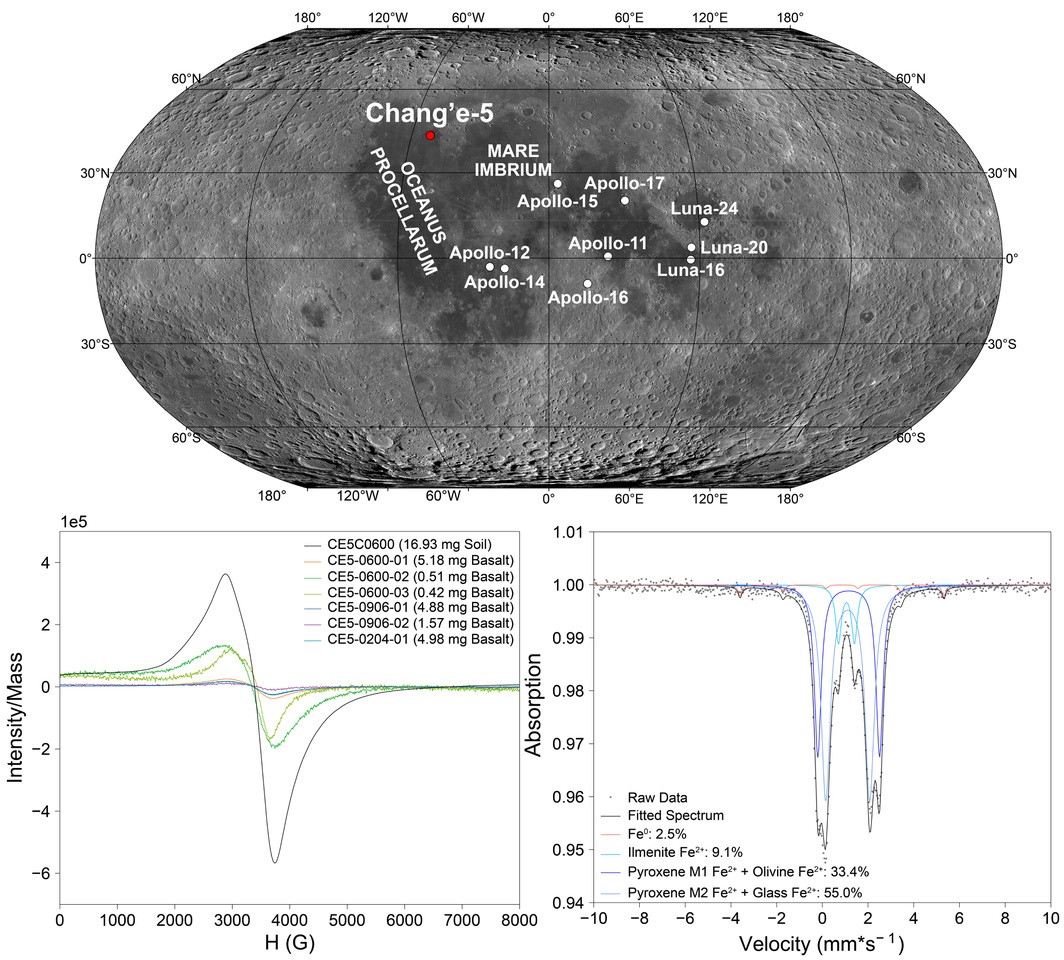Dr. Yuqi Qian and Dr. Joseph Michalski. First magnetic and spectroscopic constraints on attenuated space weathering at the Chang’e-5 landing site.
Dr. Yuqi Qian and Dr. Joseph Michalski from Laboratory for Space Research, The University of Hong Kong, has publised a paper in Icarus on Nov. 24, 2023, documenting the space weathering effects of the newly returned Chang’e-5 lunar soils. In this paper, they conducted the first vibrating sample magnetometer measurement, the first electron paramagnetic resonance spectrometer measurement, and the first Mössbauer spectrometer measurement of Chang’e-5 soils. They found that Chang’e-5 lunar soil is among the most immature returned lunar soils from a never-sampled young geological unit.
Title: First magnetic and spectroscopic constraints on attenuated space weathering at the Chang’e-5 landing site
Abstract: Space weathering is a primary process altering the lunar surface, producing submicroscopic iron particles embedded in soil grains, which have diagnostic magnetic and spectroscopic effects. However, the space weathering of lunar soils from young geological units remains mysterious without solid constraints from returned samples. Chang’e-5 mission is the first lunar sample-return mission in decades. The Chang’e-5 landing and sampling unit (~2.0 Ga) is much younger than all Apollo and Luna units (>3.0 Ga). It has provided an unprecedented opportunity to reveal the recent space weathering characteristics with both returned soil samples and in situ investigation data. In this study, magnetic approaches (Vibrating Sample Magnetometer, Electron Paramagnetic Resonance Spectrometer, Mössbauer Spectrometer) were used to characterize the Chang’e-5 lunar soil for the first time after the return of the samples, strongly supporting it is among the most immature soils on the Moon with a metallic iron abundance of 0.42% and an Is/FeO value of 14+6/-10. Additional Landing Camera and Lunar Mineralogical Spectrometer (480–3200 nm) data obtained surrounding the sampling area were used to study the lateral effects of rocket exhaust. All data from soil samples and in situ observations have offered magnetic and spectroscopic constraints on the space weathering state of the Chang’e-5 site. The combined effects of rocket exhaust by removing the top highly weathered soil and the young age of the landing site with lesser degree of impact reworking may attenuate the maturity of Chang’e-5 lunar soils.


